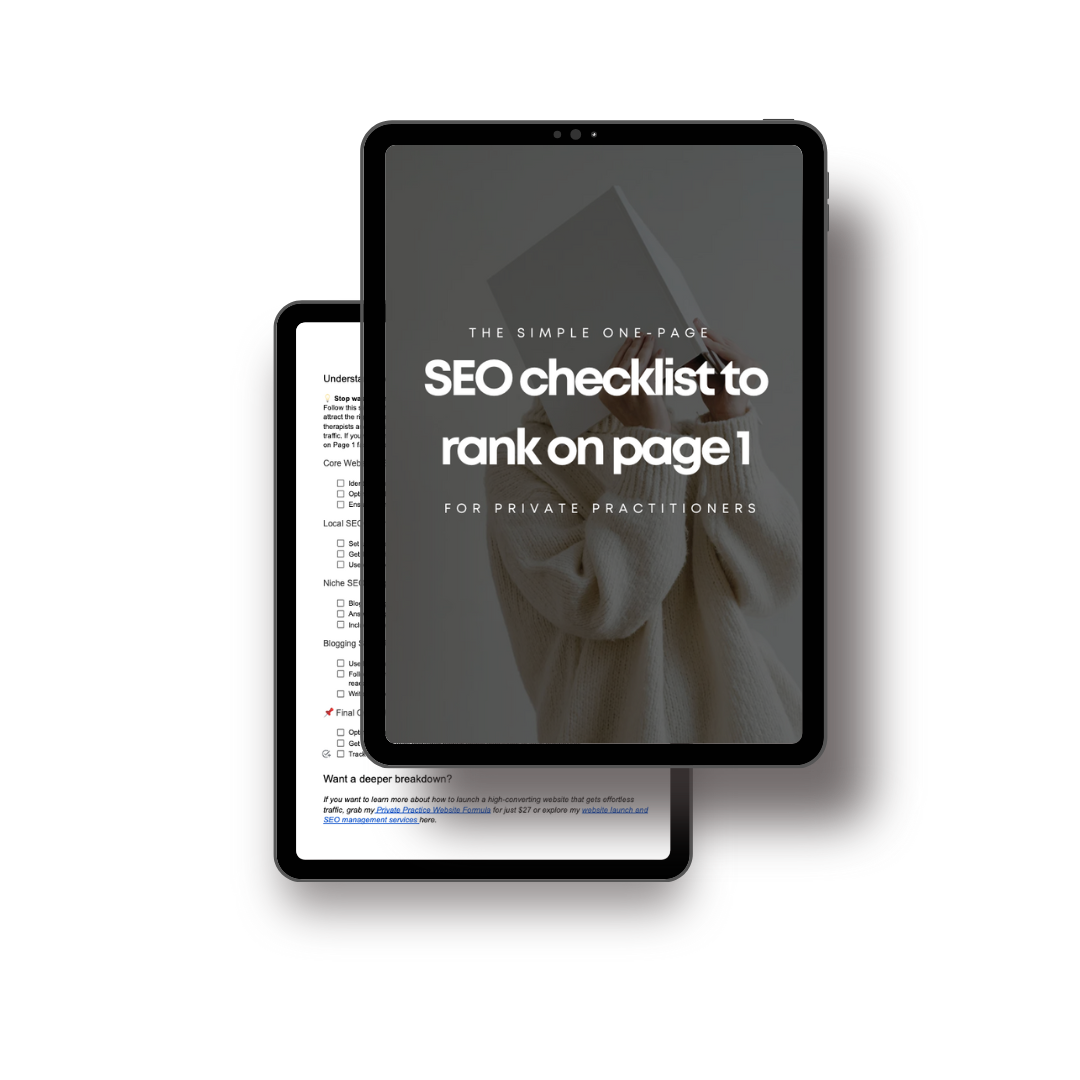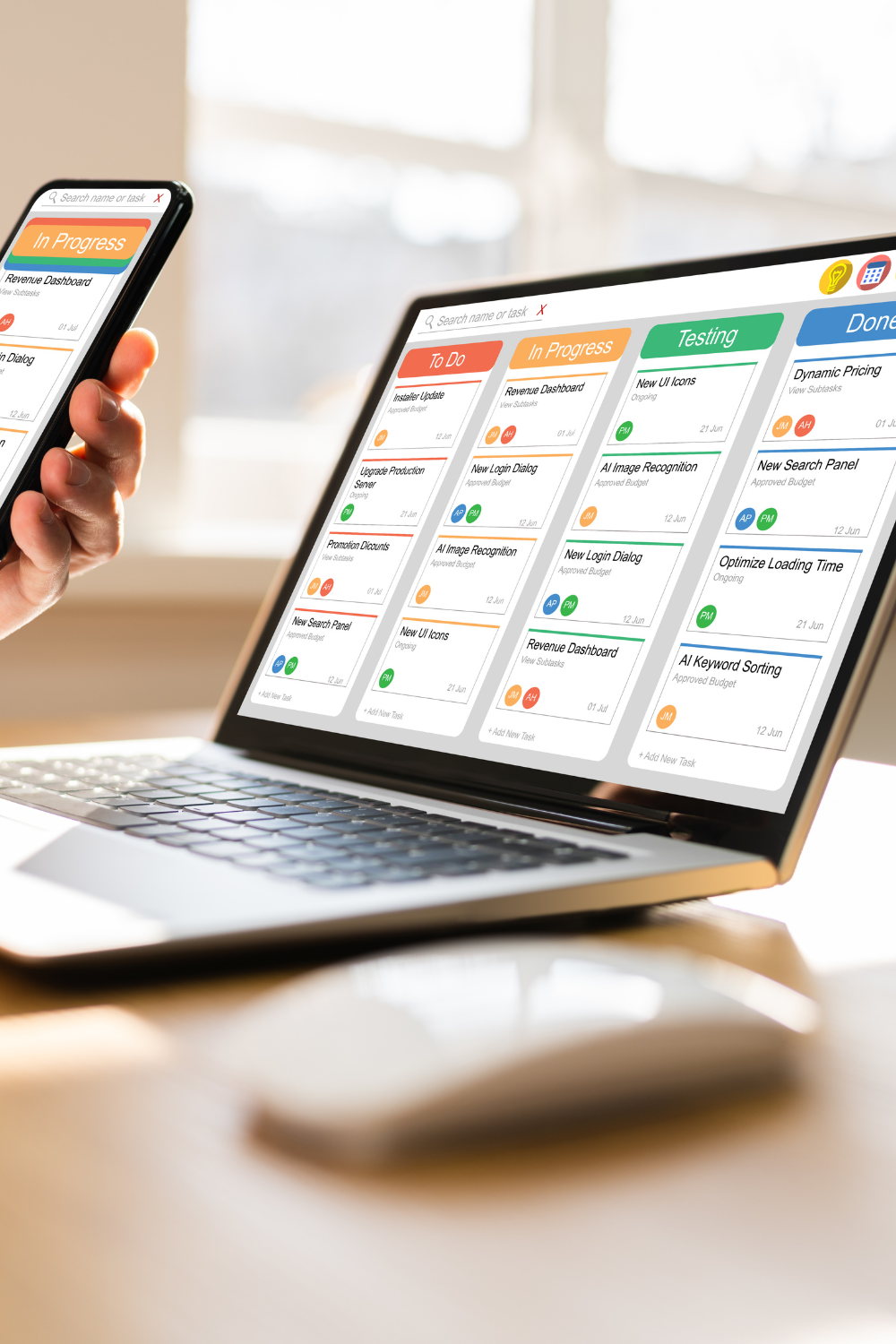Private practice therapist salary and tips for increasing your income
Starting a private practice as a therapist is an exciting step toward autonomy and flexibility in your career. But let’s be honest—one of the biggest questions on your mind is probably about income. Can you make a sustainable living? How does your specialty or location impact earnings?
In this post, we’re diving into all things related to private practice therapist salaries. Whether you’re just starting or looking to increase your income, understanding the numbers can help you build a thriving practice that meets your financial goals.
A lot of therapists feel stuck when it comes to figuring out how much they can actually make in private practice. There’s so much uncertainty around things like setting the right rates, covering overhead costs, and dealing with income that can feel all over the place. Without a clear roadmap, it’s hard to plan for a practice that not only works but thrives.
That’s why getting a handle on the numbers can be such a game-changer. Knowing what the average income looks like and understanding what really affects your earnings—like how many clients you see, your specialty, or even where you’re located—gives you the clarity to move forward with confidence. With the right strategies, you can build a practice that’s not just sustainable but truly profitable, giving you the freedom to focus on what you love most: helping your clients.
In case we haven’t met, I’m Natalia Maganda—a web designer for therapists and private practice owners . I’m here to help mental health professionals and holistic practitioners amplify their unique magic, gain visibility, and simplify their marketing efforts with strategic web design and compelling content. Whether you're just starting out or looking to elevate your practice, I’m passionate about helping you build a brand that feels authentic and attracts your ideal clients.
A website that clearly communicates who you are, what you offer, and the transformation you provide is often the deciding factor for someone looking for the right therapist.
*This post contains sponsored links.
What Is the average salary for private practice therapists?
Earnings for private practice therapists vary based on experience, location, and specialization. According to TelepsychHealth , the average annual income ranges from $60,000 to $100,000. Entry-level therapists might start around $50,000 per year, while seasoned professionals can exceed $100,000 with a steady client base and optimized operations.
How location affects salary
- Urban Areas: Higher demand and session rates in cities like New York or San Francisco lead to higher earnings.
- Rural Areas: Lower cost of living but potentially fewer clients can affect income.
- State Variations: For instance, therapists in Massachusetts have an average salary of $106,000, while in Florida, it's around $75,600 ( teletherapistnetwork.com).
Entry-level therapists, for instance, may start closer to $50,000 as they build their client base and establish their reputation. On the other hand, seasoned professionals with a full schedule and a specialized niche can earn upwards of $100,000.
It’s not just about how many clients you see—it’s about how efficiently you manage your practice. Therapists who streamline their processes, attract private-pay clients, or offer specialized services often find themselves in the higher income brackets. Understanding these dynamics is the first step toward building a practice that meets your financial goals.
What affects your income as a private practice therapist?
Your income isn’t just determined by how much you charge per session; a whole range of factors come into play. For starters, the number of clients you see each week can dramatically impact your earnings. Therapists with a steady flow of 15-20 clients per week are generally in a stronger financial position compared to those with lighter schedules.
Session rates also matter. Depending on your expertise and location, you could charge anywhere from $75 to $250 per session. However, higher rates don’t automatically mean higher earnings if your practice expenses, like rent or software, are eating into your revenue. Therapists who rely heavily on insurance reimbursements might also find their income limited compared to those focusing on private-pay clients. Balancing these elements is key to maximizing your take-home pay.
How do therapy specialties impact your earnings?
The type of therapy you specialize in can significantly influence your income. For instance, marriage and family therapists earn a median annual wage of $58,510, with the top 25% making up to $75,220. Bureau of Labor Statistics
In contrast, trauma therapists have an average annual salary of approximately $62,528, though this can vary based on experience and location. Salary.com

Does location really make a difference in income?
Your practice's location significantly influences your earning potential as a therapist. In major metropolitan areas like New York City or Los Angeles, therapists often command higher session rates due to elevated living costs and increased demand for services. This environment can lead to annual earnings surpassing six figures, particularly for those focusing on private-pay clients.
Conversely, therapists in rural regions may encounter lower session rates and a more limited client base. However, the reduced cost of living in these areas can help balance the income disparity. It's also noteworthy that certain states, such as California and Massachusetts, consistently report higher average therapist salaries, regardless of urban or rural settings. For example, California boasts an average therapist salary of $72,873, while Missouri's average stands at $44,095. Zippia
These variations underscore the importance of considering location when establishing a private practice, as it directly impacts earning potential and overall financial well-being.
How does private practice compare to other work settings?
Private practice offers a level of freedom and income potential that other therapy settings can’t always match. Working in a hospital or clinic often comes with a stable salary and benefits, but it also means less flexibility and lower earning potential overall. Similarly, school-based therapy jobs might offer predictable schedules but are generally capped at lower salaries.
In private practice, the sky’s the limit—especially if you’re strategic about how you structure your services. You have full control over your rates, client load, and even the type of work you do, which means you can tailor your practice to fit your financial and professional goals. That said, it also comes with challenges, like managing business expenses and marketing yourself effectively, but the rewards can far outweigh the risks.
How can you maximize your earnings as a private practice therapist?
If you’re looking to increase your income, there are plenty of strategies to consider. Diversifying your revenue streams is one of the most effective ways to do this. Many therapists supplement their one-on-one sessions with workshops, online courses, or group therapy sessions, which not only boost income but also allow you to help more people in less time.
Another key strategy is building a strong referral network. Collaborating with other professionals, like doctors, schools, or community organizations, can keep a steady flow of new clients coming through your doors. And don’t underestimate the power of marketing—having a professional online presence that speaks directly to your ideal clients can make all the difference in filling your calendar.
What are the common challenges in private practice?
While private practice offers incredible opportunities, it’s not without its hurdles. One of the biggest challenges therapists face is inconsistent income. Client schedules can fluctuate throughout the year, especially during holidays or summer months, which can make budgeting tricky.
Another common issue is the time and energy spent on non-clinical tasks like billing, scheduling, and insurance reimbursements. These administrative duties can eat into your time and leave you feeling stretched thin. Finally, many therapists find it challenging to market themselves effectively, which can lead to gaps in their client roster. The good news? With the right tools and strategies, these challenges are entirely manageable.
Navigating the financial side of private practice doesn’t have to be overwhelming. By understanding what influences your income, choosing a specialty that aligns with your goals, and implementing smart strategies to boost your earnings, you can create a practice that’s not only sustainable but thriving. Remember, the key to success is clarity—know your numbers, know your value, and take steps to build the practice (and life) you’ve always wanted.
Why your website is key to earning more in private practice
Building a profitable private practice isn’t just about how many clients you see or what you charge per session—it’s also about how you attract those clients in the first place. A well-designed, strategic website can be one of the most powerful tools to help you grow your practice and increase your income.
Your website acts as a 24/7 marketing hub, showcasing your expertise and making it easy for potential clients to find and trust you. With the right design and content, it can do so much more than list your services—it can create an emotional connection with your ideal clients. A website that clearly communicates who you are, what you offer, and the transformation you provide is often the deciding factor for someone looking for the right therapist.
Beyond first impressions, a great website also helps streamline your operations. Features like online booking, automated scheduling, and easy-to-access intake forms save you time and make the client experience seamless, which can lead to higher retention rates. And when your website is optimized for local SEO, you can attract clients in your area who are actively searching for the services you offer—without spending hours on marketing or paying for ads.
If you’re ready to take your private practice to the next level, investing in a professional, strategic website isn’t just an expense—it’s an opportunity to amplify your income, save time, and help more people. Let’s chat about how I can help you create a website that works as hard as you do!
Related reads:
- How to choose a profitable therapy niche to attract higher-paying clients
- How to make $100K as a therapist without seeing 20+ clients a week
- How much is Psychology today? Pros and cons
- The ultimate guide to branding your therapy and private practice
- 40 marketing ideas for therapists
- 10 simple ways to get more therapy clients for your private practice

* AI Disclosure: This content may contain sections generated with AI with the purpose of providing you with condensed helpful and relevant content, however all personal opinions are 100% human made as well as the blog post structure, outline and key takeaways.
* Affiliate Disclosure: Some of the links on www.nataliamaganda.com may contain affiliate links meaning that I will get a commission for recommending products at no extra cost to you.

hello! i'm natalia
Latina, web design expert for mental health professionals.
I help ambitious life coaches, therapists and holistic leaders amplify their magic, gain visibility, and simplify their marketing efforts through strategic web design and content.










